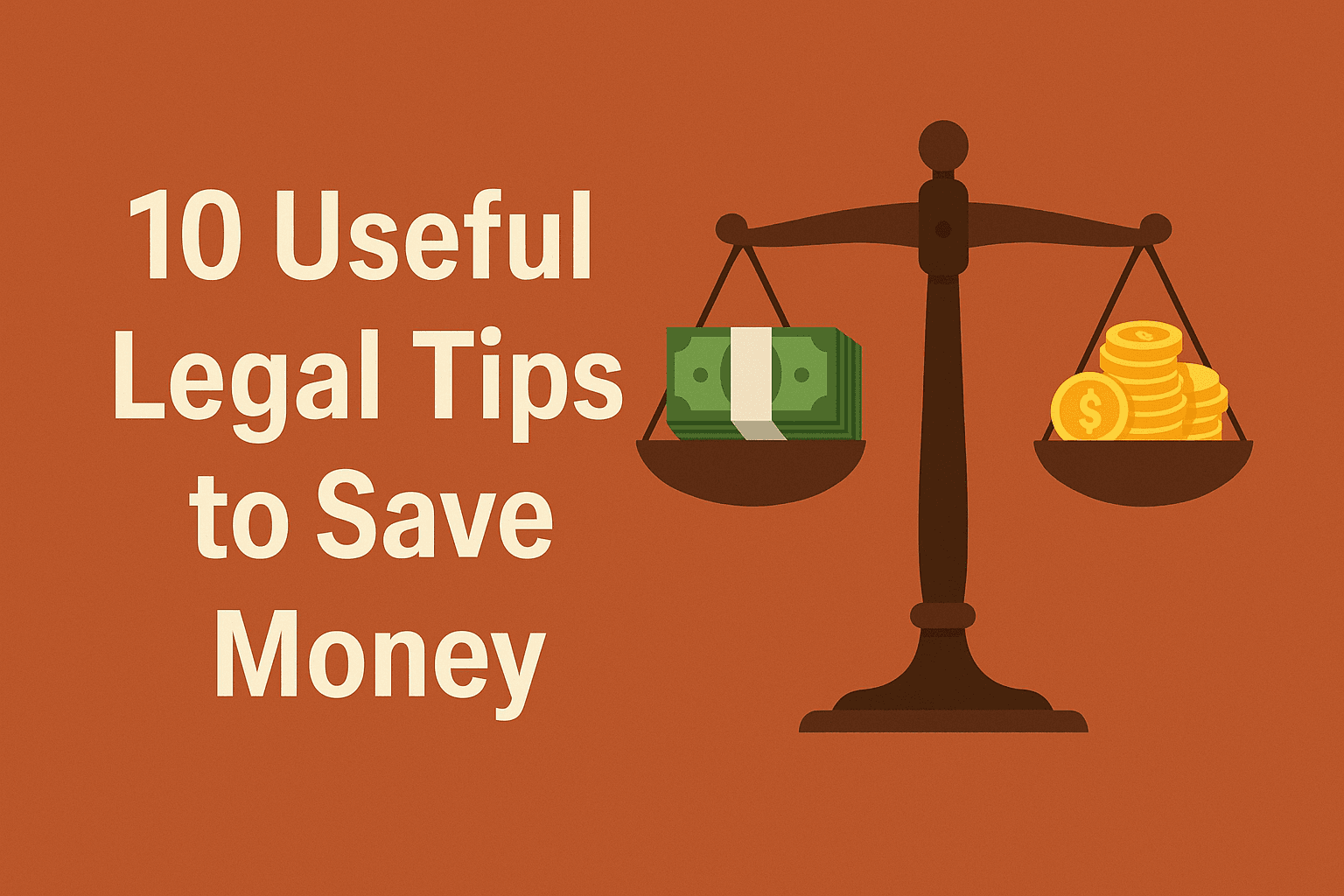Introduction: Why Legal Knowledge = Financial Power
Most people in the U.S. only think about lawyers when facing a lawsuit or drafting complex contracts. But the truth is, understanding basic everyday legal rules can directly impact your wallet. Whether you’re renting an apartment, paying taxes, or signing an employment contract, small legal insights can protect your money, prevent scams, and even open new financial opportunities.
In this article, we’ll cover 10 practical legal tips—from tenant rights to consumer protections—that every American should know. These are not complicated “lawyer-only” concepts, but simple tools that can save or make money in your daily life.
1. Know Your Tenant Rights Before You Sign a Lease
Renting is common in the U.S., but many renters don’t realize they are legally protected.
Security deposits: Many states limit how much landlords can charge and require refunds within a set period.
Repairs: Landlords are often legally required to keep rental units habitable.
Eviction: Most states require proper notice before eviction, and in some cases, tenants can fight it in court.
👉 Tip: Before renting, check your state’s landlord-tenant law on your state’s official government website. This can prevent unexpected costs.
2. Protect Your Income with Employment Contract Awareness
A job contract isn’t just paperwork—it defines your financial future. Look for:
Non-compete clauses: These can restrict future job opportunities.
Overtime rules: Many workers miss out on money because they don’t know overtime laws.
Severance and benefits: Knowing what you’re entitled to can save thousands.
👉 Tip: Always ask for a copy of your contract and consult HR or legal aid before signing.
3. Save Big Through Tax Deductions and Credits
U.S. tax law has countless deductions and credits that can help reduce your tax bill.
Home office deduction for remote workers.
Education credits for tuition and student loans.
Medical expenses exceeding a certain threshold.
👉 Tip: Keep receipts and consult IRS.gov or a tax preparer to maximize deductions legally.
4. Use Small Claims Court to Recover Money
If someone owes you less than $10,000 (amount varies by state), you may not need a lawyer. Small claims courts are designed for everyday people to handle disputes quickly and affordably.
👉 Example: If a contractor fails to finish a home repair, you can sue in small claims without paying huge attorney fees.
5. Put Everything in Writing
Oral agreements often lead to disputes. Whether it’s a freelance project, splitting rent, or lending money, a simple written contract can protect you.
👉 Tip: Even a one-page written note with signatures can hold legal weight in court.
6. Understand Credit & Loan Fine Print
Banks make money from what customers don’t read. Always check:
APR (Annual Percentage Rate)
Late fees and penalties
Prepayment terms
👉 Tip: Compare at least 3 loan offers before signing—this can save thousands over time.
7. Don’t Just Pay That Traffic Ticket
Traffic fines can be negotiated or contested.
In some states, attending traffic school removes points.
Judges may reduce fines for first-time offenders.
👉 Tip: Always research your state’s traffic ticket policies before paying.
8. Use Consumer Protection Laws to Your Advantage
If you buy a defective product, you may be legally entitled to a replacement or refund. The Federal Trade Commission (FTC) enforces these rules.
👉 Tip: Keep proof of purchase and file complaints with the FTC or state attorney general if necessary.
9. Estate Planning Isn’t Just for the Rich
A simple will, trust, or power of attorney can prevent your family from spending thousands in probate court.
👉 Tip: Many states offer free or low-cost estate planning templates—don’t wait until it’s too late.
10. Protect Yourself from Scams with Legal Awareness
Fake debt collectors, phishing emails, and online fraud are everywhere. Knowing your right to dispute debts, report fraud, and demand verification can save you from losing money.
👉 Tip: Report scams to the FTC, and never give personal details to unknown callers.
Conclusion: Everyday Legal Knowledge = Everyday Savings
You don’t have to be a lawyer to benefit from the law. These 10 everyday legal tips can help you:
Avoid unfair charges
Save on taxes and fees
Protect your job and income
Prevent costly legal disputes
Start by applying just one tip today—whether it’s checking your lease agreement, contesting a traffic ticket, or claiming a tax credit. Small legal knowledge builds up to big financial wins over time.
